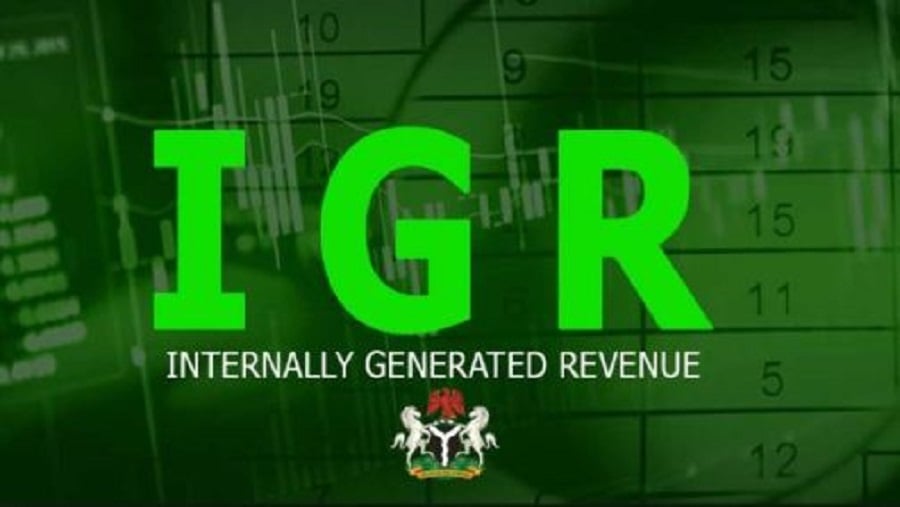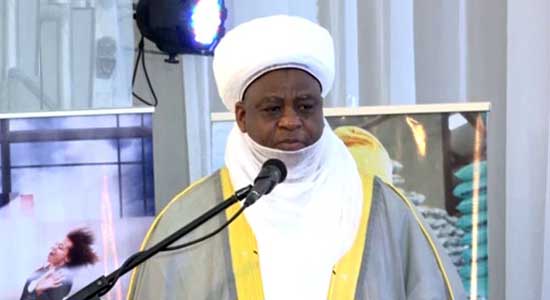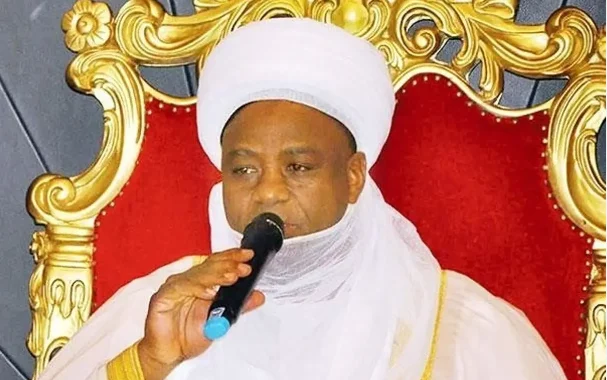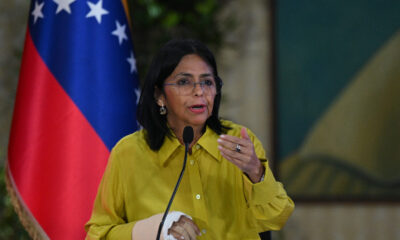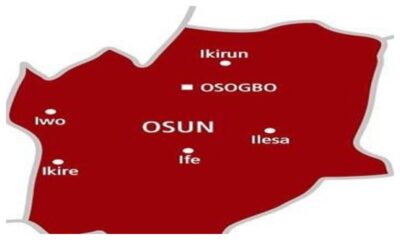The surge in subnational revenue has drawn mixed reactions from stakeholders nationwide, including labour union leaders and opposition parties, many of whom have criticised poor revenue management and the neglect of key projects at both federal and state levels.
This follows Monday’s release of Internally Generated Revenue data by the National Bureau of Statistics, showing that states’ combined revenue jumped by 50 per cent to N3.63tn in 2024, even as dependence on monthly disbursements from the Federation Accounts Allocation Committee persisted.
Twelve states recorded over 50 per cent revenue growth, while 24 states posted less than 50 per cent, underscoring the structural weakness of state economies and their reliance on FAAC allocations.
Labour leaders, opposition parties, and civil society groups who spoke to The PUNCH in separate interviews acknowledged the impressive growth in IGR but questioned its transparency and impact on citizens’ welfare.
Labour unions accused some state governments of failing to translate higher revenues into tangible development outcomes, alleging that workers’ welfare, infrastructure, and public services remain neglected despite record earnings. The Nigeria Labour Congress in several states described the growth as “paper gains”, arguing that it had not translated into improved salaries, pension settlements, or better healthcare services.
Opposition politicians also questioned the fiscal discipline of many governors, alleging that despite unprecedented inflows, budget performance and capital projects remained weak. They called on anti-graft agencies and auditors to investigate how states manage their revenues, insisting that citizens must see clear value for every naira generated.
The Peoples Democratic Party (PDP) in Ogun State said there was nothing on the ground to reflect the increased federal allocation to the state following fuel subsidy removal.
The party’s Publicity Secretary, Arc. Kayode Adebayo, told The PUNCH that while allocations to states had risen substantially, the Dapo Abiodun administration had “nothing significant to show”.
“Our roads are bad, and local governments, the tier closest to the people, have nothing to show. They can’t even clear drainages,” Adebayo said. “Local government autonomy exists only on paper. The governors are not in tune with President Bola Tinubu’s position on its implementation. Residents are not feeling the impact of these increased funds.”
Trade Union Congress Chairman, Comrade Akeem Lasisi, echoed similar sentiments, noting that many states had failed to make judicious use of the increased revenue.
“The general public is yet to feel the full impact. The government must prioritise workers’ welfare and projects that directly benefit residents, such as infrastructure, healthcare, and education,” he said.
In Sokoto, PDP Chairman Hon. Aliyu Goronyo accused Governor Ahmed Aliyu’s administration of mismanaging state revenue and abandoning legacy projects initiated by the previous government.
“Despite increased inflows, there’s no single legacy project to the government’s name,” Goronyo said. “Every project we started that had direct impact on people, from the Teaching Hospital to market developments, has been abandoned.”
He also alleged worsening insecurity and unemployment, claiming that over 2,000 health workers employed by the former administration had been dismissed. “Even after a year, many local government chairmen have no official vehicles,” he added.
Opposition parties and labour leaders in Benue State faulted Governor Hyacinth Alia’s performance despite “huge resources” accruing to the state.
PDP Chairman Hon. Ezekiel Adaji described the governor as “a total failure”, accusing him of prioritising political battles over governance. Labour Party Chairman Ibrahim Idoko also criticised the government, saying, “Payment of salaries and pensions is a basic duty, not an achievement.”
He added that ongoing road projects were not commensurate with the state’s revenue and accused the government of neglecting local contractors who could stimulate the economy.
In contrast, Plateau State NLC Chairman Eugene Mangji commended Governor Caleb Mutfwang for regular payment of workers’ salaries and implementation of the minimum wage.
He said, “As labour, our concern is prompt payment. The governor has met that expectation.” However, he declined to comment on budget utilisation, saying the NLC lacked oversight in that area.
The NLC in Kano praised Governor Abba Kabir Yusuf for prudent fiscal management. Chairman Kabiru Inuwa noted that “workers suffered under the previous administration, but this government has cleared arrears and paid N27bn of N48bn in gratuities.”
However, the SDP Chairman, Alhaji Ali Shettima, accused the government of “misplaced priorities”, saying it focused on flyovers rather than water supply and agriculture. “Only 15 per cent of residents have potable water,” he lamented.
Bayelsa TUC Chairman, Comrade Julius Laye, urged Governor Douye Diri to channel more funds into health and education despite progress in infrastructure.
He lauded the administration for constructing roads, acquiring aircraft, and paying gratuities but warned, “Hospitals are losing staff through retirements; without new recruitment, service delivery will suffer.”
In Zamfara, NLC Secretary Ahmed Abubakar said several ongoing projects suggested better governance, but APC spokesman Yusuf Idris alleged that development efforts were concentrated in Governor Dauda Lawal’s hometown, Gusau.
In Jigawa, NLC Chairman Sanusi Maigatari described IGR growth as encouraging but urged greater transparency. PDP Deputy Chairman Umar Danjani demanded an independent audit, saying, “We see rising figures but no visible impact.” Labour Party chieftain Ashiru Dalhatu also bemoaned poor infrastructure and unemployment.
The Bauchi TUC praised Governor Bala Mohammed’s administration for prudence and prompt payment of the N70,000 minimum wage.
State Chairman Sabiu Barau said, “Every local government has benefited from infrastructure upgrades. This is responsible governance.”
Despite overall growth, 24 states recorded less than 50 per cent IGR increase in 2024, raising concerns about fiscal dependence on FAAC.
FAAC data showed that the 36 states and the FCT collectively received N5.08tn from the Federation Account in 2024, well above their combined IGR of N3.63tn.
Among low performers were Adamawa, Anambra, Bauchi, Benue, Borno, Delta, Edo, Ekiti, FCT, Gombe, Imo, Kaduna, Katsina, Kogi, Kwara, Nasarawa, Ogun, Ondo, Oyo, Plateau, Sokoto, Yobe, and Zamfara. Some states, including Ondo, Ebonyi, and Yobe, even reported revenue declines.
In contrast, high performers such as Abia, Akwa Ibom, Bayelsa, Cross River, Enugu, Jigawa, Kano, Kebbi, Lagos, Osun, Rivers, and Taraba recorded growth of 50 per cent or more.
Lagos, Rivers, and the FCT remained Nigeria’s top revenue generators, accounting for more than 40 per cent of the national total.
Enugu State led percentage growth, rising by 433 per cent from N33.86bn to N180.50bn, followed by Bayelsa’s 222 per cent and Kano’s 100 per cent.
Fiscal analysts attributed Enugu’s rise to reforms in land administration and automation, while Bayelsa’s growth was driven by improved oil-related levies.
Despite such gains, experts warned that without stronger fiscal accountability, many states risk continuing a cycle of revenue growth without visible development.
punch.ng
FOLLOW US ON:

